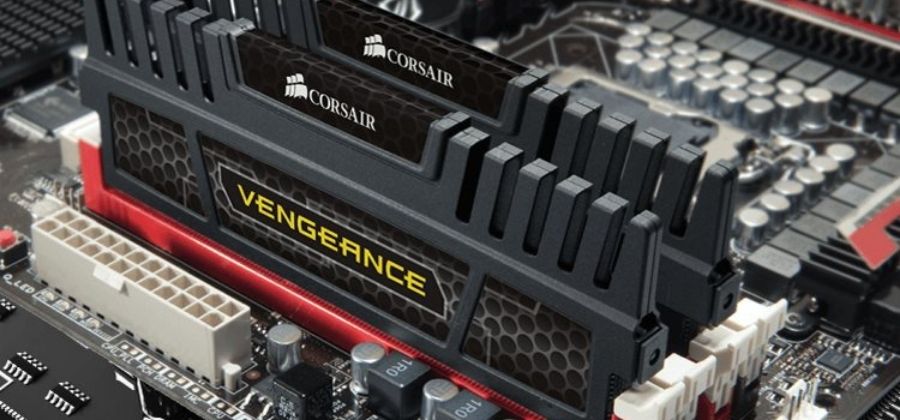What is the difference between single channel vs dual channel vs quad channel?
One of the hottest topics in memory, especially in higher-end processors and workstations, is memory channeling, or the speed at which RAM can be accessed by a processor. There is also the issue of “dual channelling” where two sticks of memory are installed on the same motherboard allowing for increased bandwidth. DRAM Frequency And How To Set It Properly?
Today we will discuss the difference between design concepts usually referred to as single channel, dual-channel, and quad-channel, how they actually behave, their limitations, and why they matter.
Single Channel vs Dual Channel vs Quad Channel Memory:

Single Channel RAM:
A single-channel RAM configuration contains a single memory module. This means that one memory module takes care of all the data transfers that occur between the CPU, the RAM, and the rest of the system. What Is RAM And Why Is It Important?
Dual Channel RAM:
A dual-channel memory configuration contains two or more memory modules. This means that two or more memory modules are responsible for data transfers between the CPU, the RAM, and the rest of the system.
Quad Channel RAM:
Quad Channel memory is a new technology that Intel has introduced in the latest series of processors from Intel. I am talking about the Sandy Bridge-E processors which are meant for high-end users and are generally used to build workstation-based PCs or for some gaming purpose.
The most recent processor supporting this new Quad Channel memory technology is the Intel Core i7 processor, which can be used in motherboards with the LGA2011 socket type. The motherboard, which we will discuss today, is made by the ASRock company. This ASUS ROG Strix B450-F motherboard (Amazon) is meant for those who do not believe in any sort of compromise in terms of the performance of their machine.
Single Channel vs Dual Channel (For Gaming) Difference:
Speed:
A dual-channel memory controller can process twice as much data at a time as a single-channel one. In other words, the two RAM sticks in dual-channel mode offer an effective clock speed that is twice as high as the same sticks in single-channel mode. How To Choose RAM for A Gaming PC?
Bandwidth:
The bandwidth of RAM is measured in GB/s (gigabytes per second). It shows how many gigabytes of data can be stored and retrieved from RAM each second. The bandwidth of single-channel RAM is half the bandwidth of dual-channel RAM with the same memory modules.
Power consumption:
When they’re not being used, all modules of RAM go into sleep mode to save power. In a dual-channel configuration, only one slot has to stay awake so that it can easily reawaken the other one when more memory is needed. In a single-channel configuration, all slots have to stay awake at all times, so power consumption is higher when you have only one stick installed.
Heat generation:
All modules produce heat when they’re active, but active modules produce more heat than inactive ones. Since a dual-channel configuration has some inactive slots at any given moment, it produces less heat than a single-channel configuration. Does the Brand Of RAM Matter?
Dual Channel vs Quad Channel Memory:
Dual Channel memory is a bit faster than single channel, but not by much. Dual-channel means that you have two identical modules of memory (not one stick of memory), and it is running in dual channel mode.
Quad Channel is more effective than Dual Channel. Quad Channel means that you have four identical modules of memory, and it is running in quad-channel mode. If the computer has two slots for memory, then it will only be able to work in Single or Dual Channel mode.
Reasons Why You Should Buy Dual/Quad Channel RAM Memory:
When you are shopping for new RAM, it is easy to be overwhelmed by the sheer number of choices. Most people make the mistake of buying a single RAM stick and putting it into their computer, which means that they only have one channel.
For most people, two sticks of RAM will suffice for a dual-channel configuration. However, some people will want to go all out and buy four sticks of RAM, which makes up a quad-channel configuration. While it can be expensive to buy this much RAM, there are several reasons why it is worth the extra money.
These are some of the reasons why you should consider going with a quad-channel or dual-channel configuration:
Faster Speed:
One of the most obvious advantages of having dual/quad-channel RAM is that your computer will run faster. This is true because it means that your computer will have more bandwidth available, which means that tasks can be performed faster.
This is particularly useful if you use your computer for gaming. For example, loading maps in games like WoW can be almost twice as fast with a dual-channel configuration as if you had a single stick of RAM.
Better Overclocking:
In addition to maximizing speed with more bandwidth, having more RAM gives you capabilities that go beyond mere performance.
Frequently Asked Questions
Is quad-channel better than dual-channel?
In our testing and research, there is no better experience we observed. So, overall, quad-channel is worth buying if you’re believing that the performance will improve with Quad Channel.
Is dual-channel better than single?
Yes, and it is worth buying if you choose dual channel over single-channel memory. But only if your motherboard supports dual channel memory will help you handle complicated multitasking.
Conclusion:
So, after all, is said, you will probably ask whether you should go for a single channel or dual channel, or even quad-channel memory. Well, we can see that the differences between the three are marginal, and if you like to be objective about everything, then we would suggest that you get the single-channel memory since it is extremely affordable yet reasonably fast.
Overall, though, we feel that it’s best if you stick to your initial choice irrespective of which one it is because, as we have already mentioned this one time before, everything in this world comes down to perception and preference.

![How To Fix A CPU Cooler Not Lighting Up? [New Guide 2023]](https://www.drtechreviews.com/wp-content/uploads/2022/07/How-To-Fix-A-CPU-Cooler-Not-Lighting-Up-450x210.jpg)

![Why Is My CPU Cooler So Loud? [Facts 2023]](https://www.drtechreviews.com/wp-content/uploads/2022/07/Why-Is-My-CPU-Cooler-So-Loud-450x210.jpg)
![Fix Dual Monitor Lag In Windows [Explanation For Beginners]](https://www.drtechreviews.com/wp-content/uploads/2022/07/Fix-Dual-Monitor-Lag-In-Windows-450x210.jpg)
![Fix A Monitor Randomly Loses Signal [Problems & Solutions 2023]](https://www.drtechreviews.com/wp-content/uploads/2022/07/Fix-A-Monitor-Randomly-Loses-Signal-450x210.jpg)